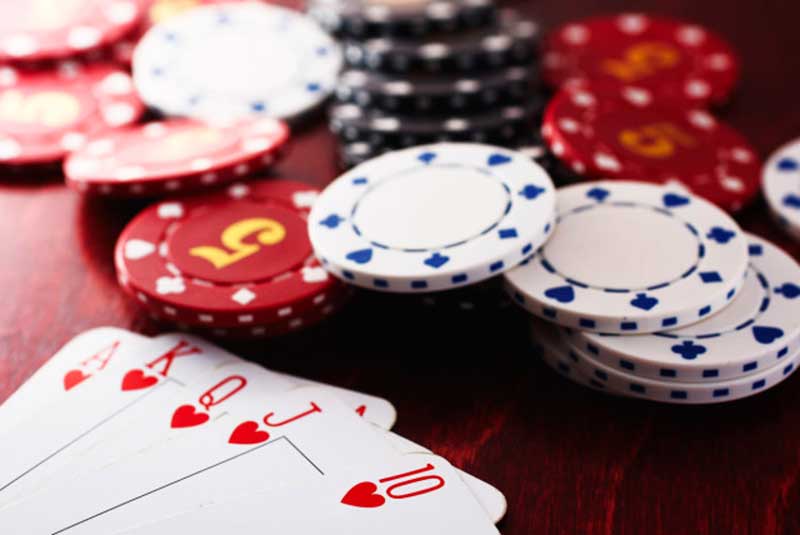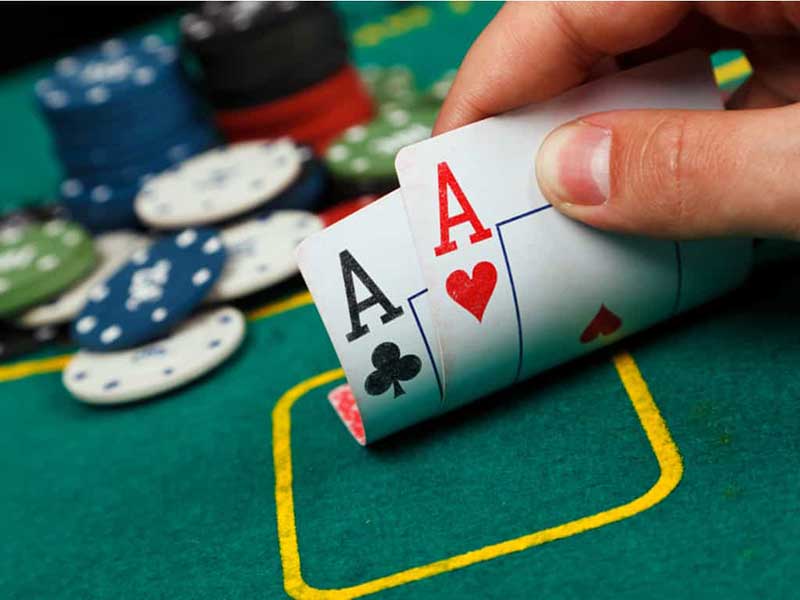
If you’re interested in gaming and gambling, you’ve probably heard the terms “poker” and “gambling” used interchangeably. While there are similarities between the two, they are not the same activity. In this article, we will examine the differences between poker and gambling and highlight the unique characteristics of each.
While both poker and gambling involve an element of chance, they differ in terms of the skills required to play and win. Poker is a game of skill that tests your strategic thinking, decision-making prowess, and psychological acuity. In contrast, gambling activities are typically based more on luck and randomness than strategy.
But how exactly are poker and gambling different, and what distinguishes one from the other? In the following sections, we will explore these questions and provide a detailed breakdown of the key variances between these popular pastimes.
Key Takeaways:
- Poker and gambling are not interchangeable terms and refer to two different things.
- Poker requires skill and strategy to play, while gambling activities are more heavily based on luck and chance.
- In the coming sections, we will examine the specific characteristics of each activity and highlight their differences and similarities.
The Nature of Poker and Gambling
While poker and gambling may seem similar on the surface, a closer examination reveals several key differences that set them apart.
Firstly, poker is a game that involves skill, strategy, and decision-making, whereas gambling games tend to rely more heavily on chance. While luck plays a role in both activities, poker requires players to actively think and analyze their opponents, plan their moves, and anticipate possible outcomes.
Another key difference between poker and gambling is the nature of the activity. Poker is often played in a social setting, where players interact and engage with each other. In contrast, many gambling games, such as slot machines or online casinos, are solitary activities that involve little interaction with others.
What Separates Poker and Gambling?
A major factor that separates poker and gambling is the level of control that players have over the outcome. In poker, players have a degree of agency and can influence the result through their actions and decisions. Gambling games, on the other hand, are often entirely left up to chance and random outcomes.
Unlike gambling which often relies on pure luck, poker is a strategic endeavor that tests a player’s skills and wits against others. Additionally, while many forms of gambling offer little in terms of long-term engagement, poker can be a lifelong pursuit that challenges players to continually improve their game.
“In poker, you’re playing against people who are making decisions, as opposed to games where you’re playing against a machine. It’s more about understanding the psychology of people and what they’re going to do.” – Daniel Negreanu
A Comparison Between Poker and Gambling
| Category | Poker | Gambling |
|---|---|---|
| Level of Skill Required | High | Low |
| Role of Chance | Present | Integral |
| Social Interaction | High | Low |
| Potential for Long-Term Engagement | High | Low |
As shown in the table above, poker and gambling have distinct differences that set them apart. While both activities can be entertaining and exciting, understanding these variances can help players make informed choices about the type of activity they prefer and approach it accordingly.
Skill vs. Chance in Poker
When it comes to distinguishing poker from gambling, one of the key factors is the role of skill and chance. While both involve a certain degree of luck, poker is widely considered a game of skill. This is because the outcome is influenced by strategic decision-making and psychological elements, which are absent in many other forms of gambling.
In Ufa1688, players must analyze their opponents, assess the risk, and make informed decisions based on the information at hand. These skills require time and practice to develop, and constantly evolve as the game progresses. For example, players must consider the pot odds, read the body language of their opponents, and maintain emotional control to avoid revealing their hand.
Unlike other types of gambling, where chance dictates the outcome, poker players have more control over the outcome of the game. While luck can certainly play a role in individual hands or tournaments, successful poker players consistently demonstrate skill and strategy to outsmart their opponents and win in the long run.
Moreover, poker is a mental sport that requires a combination of cognitive and interpersonal skills. Players must process information quickly, make complex decisions under pressure, and adapt to different playing styles. All of these skills are essential to succeed in poker and set it apart from other forms of gambling.
In summary, poker is different from gambling because of the way it combines skill and chance. While chance plays a role, successful poker players demonstrate a higher degree of skill and strategy that allows them to consistently win over time.

Poker and Gambling Distinctions: Distinguishing Poker from Gambling
When it comes to the world of games and pastimes, there is often a certain amount of overlap. However, when it comes to poker and gambling, it’s essential to understand the differences between the two. While both activities involve an element of chance, there are distinct variations that set them apart. In this section, we will explore these differences and highlight the unique characteristics that distinguish poker from gambling.
First and foremost, gambling is typically defined as an activity where players place wagers or bets on an uncertain outcome. This can take many forms, including slot machines, lotteries, and sports betting. The outcome is typically determined by chance, with no skill or strategy involved.
On the other hand, poker is a game that requires a combination of skill, strategy, and psychology. While chance plays a role in the cards dealt, it is up to the player to make the most of their hand and outwit their opponents. Players must analyze their opponents and make calculated decisions, using strategy and skill to win the game.
| Factors | Poker | Gambling |
|---|---|---|
| Strategy | Central to the game | Not a factor |
| Skill | Highly valued | Not necessary |
| Chance | Present but managed | Primary factor |
As the table above demonstrates, there are clear variations between the two activities. While poker entails skill and strategy, gambling relies on chance. Of course, players also have the opportunity to employ strategies such as bankroll management and game selection.
“Poker is a game of skill. Luck may play a role in the cards you get dealt, but skill is what separates the winners from the losers.”
Another way to look at the differences between poker and gambling is by examining the social element. Poker is a highly social game that is played with others. It involves reading people, making calculated decisions, and interacting with others. In contrast, gambling activities tend to be solitary experiences that are done individually, with no interaction with others.
In conclusion, while both poker and gambling involve an element of chance, they differ significantly in their nature and requirements. Poker requires skill, strategy, and social interaction, while gambling relies primarily on chance. By understanding these distinctions, players can make informed decisions and choose the type of activity that suits their preferences and goals.
Conclusion
In conclusion, it is essential to acknowledge the key variances between poker and gambling. While both pastimes involve the element of chance, poker offers a unique experience that requires skill, strategy, and psychological acuity.
Unlike gambling, where luck often determines the outcome, poker players have a higher degree of control over the game’s outcome. It involves reading the opponent’s body language, analyzing their strategies, and making informed decisions based on the available information.
Key takeaways
Players can make informed choices about the type of activity they want to engage in by understanding these differences. While gambling can be exciting, it is important to recognize the element of chance, which is often appealing to many people.
However, for those seeking a challenging game that is both engaging and thought-provoking, poker offers an excellent alternative to traditional forms of gambling. By taking the time to learn the game’s rules and honing their skills, players can enjoy the benefits of this engaging activity.
Therefore, in this article, we have explored the distinct difference between poker and gambling, highlighting the various characteristics that differentiate these popular pastimes. By understanding these differences, players can approach each activity with the appropriate mindset and expectations.
So, when it comes to choosing between poker and gambling, it’s important to ask yourself, what kind of experience are you looking for? If you want a game that requires skill, strategy, and a bit of luck, then poker is the perfect choice.
FAQ
What is the difference between poker and gambling?
While poker is a form of gambling, it involves elements of skill and strategy that set it apart from other gambling activities. In poker, players make strategic decisions based on their knowledge of the game and their opponents, whereas traditional gambling activities rely more on luck and chance.
How does poker differ from gambling?
Poker differs from traditional gambling in that it requires players to employ various skills such as reading opponents, bluffing, and making calculated decisions. It is a game of strategy and psychological warfare, whereas gambling typically relies solely on chance.
What separates poker from gambling?
The main factor that separates poker from gambling is the skill involved. While both activities involve an element of chance, poker requires players to use their knowledge, experience, and strategy to make decisions that can influence the outcome of the game. This distinguishes it from pure luck-based forms of gambling.
How is poker different from gambling?
Poker is different from gambling in that it incorporates skill and strategy. Players must carefully consider their actions, analyze the situation, and make informed decisions based on their understanding of the game. In contrast, gambling activities often rely solely on luck and chance, with little room for player influence.
What is the role of chance in gambling?
Chance plays a significant role in gambling activities. Whether it’s spinning a roulette wheel, rolling dice, or pulling a slot machine lever, the outcome is determined by luck and randomness. In gambling, players cannot influence the result through skill or strategy, as they can in poker.
